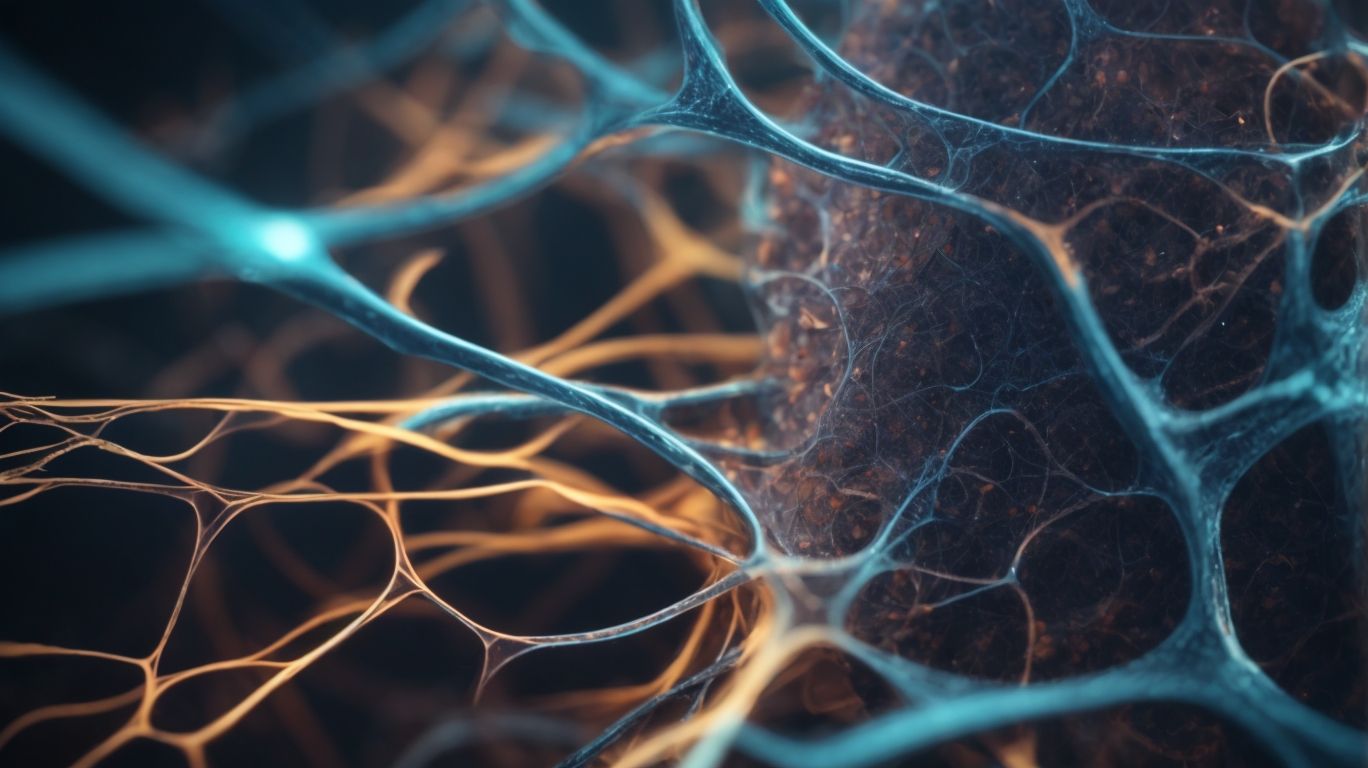Curious about how the mind develops from infancy to adulthood? Cognitive development is a fascinating area of psychology that explores the growth of knowledge, understanding, and problem-solving abilities.
In this article, we will delve into key theories of cognitive development, such as Piaget’s and Vygotsky’s, and discuss how cognitive development occurs through stages like sensorimotor and formal operational. We will also explore the factors that influence cognitive development and the positive effects it can have on problem-solving skills and critical thinking abilities.
Join us on this journey through the fascinating world of cognitive development.
Contents
- 1 What Is Cognitive Development?
- 2 What Are The Key Theories Of Cognitive Development?
- 3 How Does Cognitive Development Occur?
- 4 What Factors Influence Cognitive Development?
- 5 What Are The Effects Of Cognitive Development?
- 6 Frequently Asked Questions
- 6.1 What is cognitive development in psychology?
- 6.2 What are the main theories of cognitive development in psychology?
- 6.3 What is the role of genetics in cognitive development?
- 6.4 How does cognitive development affect learning?
- 6.5 What are some factors that can impact cognitive development?
- 6.6 Can cognitive development be improved or accelerated?
What Is Cognitive Development?
Cognitive development refers to the process through which individuals acquire knowledge, develop thinking skills, and gain an understanding of the world around them, particularly in children and adolescents.
Piaget’s Theory of cognitive development highlights the importance of different stages such as sensorimotor, preoperational, concrete operational, and formal operational stages, each crucial in shaping a child’s intellectual growth.
Understanding cognitive development is essential as it impacts an individual’s problem-solving abilities, language development, memory, and decision-making skills, ultimately contributing to their overall Intelligence Quotient (IQ).
What Are The Key Theories Of Cognitive Development?
Key theories of cognitive development include Piaget’s Theory, Vygotsky’s Sociocultural Theory, Erikson’s Psychosocial Theory, Kohlberg’s Moral Development Theory, Bandura’s Social Learning Theory, and Gardner’s Theory of Multiple Intelligences.
Each of these theories offers a unique perspective on how individuals develop cognitively, shaping our understanding of learning and development across the lifespan. Piaget’s Theory, for instance, emphasizes the importance of cognitive schemas and the process of assimilation and accommodation in children’s intellectual growth. On the other hand, Vygotsky’s Sociocultural Theory focuses on the role of social interactions and cultural influences in cognitive development, highlighting the significance of language and social context.
Similarly, Erikson’s Psychosocial Theory delves into the emotional and social aspects of development, illustrating how individuals navigate through various psychosocial stages to form their identity. Kohlberg’s Moral Development Theory is renowned for its stages of moral reasoning, outlining how individuals internalize ethical principles and make moral decisions.
Bandura’s Social Learning Theory underscores the importance of observational learning and modeling in shaping behavior, emphasizing the influence of environment and reinforcement on cognitive processes. Additionally, Gardner’s Theory of Multiple Intelligences broadens the traditional view of intelligence by proposing distinct types of intelligence beyond the typical cognitive abilities.
Piaget’s Theory Of Cognitive Development
Piaget’s Theory of Cognitive Development, proposed by Jean Piaget, outlines four stages—Sensorimotor, Preoperational, Concrete Operational, and Formal Operational—that describe the intellectual growth and maturation of children.
Starting with the Sensorimotor stage, which occurs from birth to about 2 years old, infants begin to understand the world through their senses and actions.
This is followed by the Preoperational stage, typically from ages 2 to 7, where language development and symbolic play are crucial.
Moving on to the Concrete Operational stage, around ages 7 to 11, children start to grasp concepts of conservation and logical thinking.
The Formal Operational stage, usually from age 12 and up, involves abstract thinking and hypothetical reasoning.
Vygotsky’s Sociocultural Theory
Vygotsky’s Sociocultural Theory, formulated by Lev Vygotsky, emphasizes the role of social interaction, language development, and cultural influences in cognitive growth and learning.
Central to Vygotsky’s theory is the idea that individuals’ mental processes are shaped by the social interactions they engage in. According to Vygotsky, children learn and develop through interactions with more knowledgeable others, like parents, teachers, or peers. These interactions provide the scaffolding necessary for the child to progress from their current level of understanding to a higher level of cognition.
Vygotsky highlighted the significance of language in cognitive development, suggesting that language serves as a tool for thinking and mediates one’s mental processes. Through language, individuals are able to internalize external knowledge and engage in higher-order mental functions.
Information Processing Theory
The Information Processing Theory explores how individuals process, store, and retrieve information, shedding light on memory development, perceptual skills, and problem-solving strategies.
This theory suggests that the human mind operates similar to a computer, with encoding, storage, and retrieval being key components of the cognitive process. Memory functions in this context involve sensory memory, short-term memory, and long-term memory, each playing a crucial role in information retention and recall.
Moreover, perceptual abilities are essential for interpreting and making sense of incoming sensory information. It involves processes such as pattern recognition, depth perception, and attention, shaping how individuals perceive and understand the world around them.
The Information Processing Theory also delves into the intricacies of problem-solving mechanisms, highlighting how individuals analyze and solve complex problems using strategies such as algorithms, heuristics, and trial-and-error methods.
How Does Cognitive Development Occur?
Cognitive development occurs through processes like assimilation and accommodation, as delineated by Piaget, across the stages of Sensorimotor, Preoperational, Concrete Operational, and Formal Operational, marked by various developmental milestones.
-
Assimilation refers to the process of fitting new information into existing mental schemas, allowing individuals to interpret new experiences based on their current understanding of the world.
-
Accommodation, on the other hand, involves modifying existing schemas to incorporate new information that does not fit into the current mental structures, leading to cognitive growth and adaptation.
-
As children progress through Piaget’s stages, they transition from the Sensorimotor stage, where they learn through senses and actions, to the Preoperational stage characterized by symbolic representation and egocentrism. Subsequently, in the Concrete Operational stage, individuals develop logical thinking but are limited to concrete experiences, then advancing to the Formal Operational stage where abstract thinking and hypothetical reasoning emerge.
Assimilation and Accommodation
Assimilation and accommodation are central processes in Piaget’s Theory, where individuals assimilate new information into existing mental schemas and accommodate these schemas to create equilibrium, fostering cognitive development.
Assimilation refers to the process of fitting new information into pre-existing mental structures. This occurs when individuals encounter new experiences that are similar to what they already know, allowing them to incorporate the new information seamlessly.
On the other hand, accommodation involves altering existing mental schemas to adapt to entirely new information that does not fit into existing concepts. This process requires individuals to adjust their thinking patterns, making room for new knowledge and expanding their cognitive frameworks.
Equilibration is the overarching mechanism in Piaget’s Theory, where individuals strive for balance between assimilation and accommodation, leading to cognitive growth and the development of more complex schemas.
Sensorimotor Stage
The Sensorimotor Stage, identified by psychologists like Piaget, revolves around infants exploring the world through sensory experiences and actions, denoted by the growth of object permanence and foundational learning through exploration.
During this stage, infants progress from reflex-driven behavior to intentional actions, shaping their understanding of cause and effect. They engage in sensory-motor coordination, mastering skills such as gripping objects, rolling over, and crawling. One of the pivotal milestones in this phase is object permanence, where babies realize that objects continue to exist even when out of sight. This realization lays the groundwork for memory formation and problem-solving abilities.
Preoperational Stage
The Preoperational Stage, as outlined by Piaget, is characterized by symbolic thinking, egocentrism, and the development of language skills, marking a crucial phase in children’s cognitive growth and understanding.
In this stage, children begin to engage readily in imaginative play scenarios, using objects symbolically to represent other things. They are also more receptive to symbols such as letters and numbers. Egocentric tendencies are prevalent, where children struggle to see things from another person’s perspective. This phase is also crucial for language acquisition as children rapidly expand their vocabulary and begin to understand more complex sentence structures.
Concrete Operational Stage
The Concrete Operational Stage, identified by Piaget, is marked by the development of logical thinking, conservation abilities, and enhanced problem-solving skills, representing a pivotal phase in children’s cognitive maturation.
The provided text is already formatted with HTML tags. No additional changes are needed.
Formal Operational Stage
The Formal Operational Stage, as per Piaget’s Theory, involves the development of abstract reasoning, hypothetical thinking, and advanced cognitive abilities, enabling individuals to engage in complex problem-solving and logical reasoning.
This stage typically occurs during adolescence and continues into adulthood, marking a significant shift in cognitive development. Abstract reasoning allows individuals to think beyond concrete experiences and apply logic to hypothetical situations, enhancing their problem-solving skills.
Hypothetical thought processes enable individuals to consider multiple possibilities, anticipate outcomes, and analyze complex scenarios with a deeper level of understanding. Through this stage, individuals enhance their cognitive abilities, including memory, attention, and critical thinking, which are crucial for higher-level thinking tasks.
What Factors Influence Cognitive Development?
Cognitive development is influenced by a combination of genetic factors, environmental stimuli, social interactions, and the acquisition of cognitive skills, as per the Ecological Systems Theory.
This comprehensive approach to understanding cognitive development emphasizes the intricate interplay between nature and nurture. Genetic influences play a crucial role in shaping an individual’s cognitive abilities, laying the groundwork for potential learning capacities and intellectual strengths. On the other hand, the impact of the environment, encompassing everything from early childhood experiences to educational opportunities, molds and refines these inherent genetic predispositions. Social interactions further contribute to this complex web of influences, providing unique learning experiences and perspectives that shape cognitive growth. The acquisition of cognitive skills through practice and exposure to diverse stimuli enhances and refines one’s cognitive abilities over time, demonstrating the dynamic and multifaceted nature of cognitive development.
Genetics and Biological Factors
Genetic and biological factors play a significant role in shaping cognitive abilities, intelligence levels, and learning predispositions, underscoring the impact of inherited traits on cognitive development.
Research suggests that our genetic code contains instructions that influence how our brain develops and functions, affecting memory, problem-solving skills, attention span, and overall cognitive performance. The intricate interplay between nature and nurture is evident in studies that show how individuals with certain genetic markers may have a predisposition for higher cognitive functions or enhanced learning capabilities. These genetic predispositions can set the stage for how individuals process information, perceive the world, and respond to various stimuli, ultimately shaping their cognitive pathways and intellectual potential.
Environmental Factors
Environmental factors such as early experiences, educational opportunities, and social interactions significantly impact cognitive development, influencing developmental milestones, exploration behaviors, and problem-solving skills.
Early experiences play a crucial role by shaping the neural connections in the brain, laying the foundation for future learning. Children who are exposed to a rich environment filled with diverse stimuli are more likely to develop advanced cognitive abilities.
Educational contexts provide structured settings where cognitive skills like reasoning, memory, and language can flourish. Schools, for instance, offer challenges that promote critical thinking and logical reasoning, further enhancing cognitive development.
Social interactions with caregivers, peers, and teachers are essential for cognitive growth as they foster communication skills, empathy, and perspective-taking abilities.
Social and Cultural Influences
Social interactions and cultural contexts play a pivotal role in cognitive development, as highlighted by Vygotsky’s Sociocultural Theory, emphasizing the influence of social engagements and cultural norms on learning and cognitive growth.
The given text is already enclosed in
tags and contains a tag for bold formatting. No further formatting is necessary.
What Are The Effects Of Cognitive Development?
Cognitive development leads to enhanced problem-solving skills, a deeper understanding of the world, improved critical thinking abilities, and the development of self-concept and identity.
These outcomes of cognitive development play a crucial role in shaping an individual’s ability to analyze complex situations, make informed decisions, and navigate the challenges of daily life with confidence. As individuals grow and learn, their cognitive abilities allow them to grasp abstract concepts, think creatively, and adapt to new environments.
Cognitive growth influences how individuals perceive themselves and the world around them, fostering a sense of self-awareness and empathy towards others. By gaining a deeper understanding of one’s own thoughts and emotions, individuals can establish a strong sense of self-identity and personal values, leading to increased self-esteem and an overall positive outlook on life.
Improved Problem-solving Skills
Cognitive development fosters improved problem-solving skills, enhancing individuals’ intellectual abilities, adaptive thinking processes, and analytical capabilities.
As individuals develop cognitively, they acquire incremental knowledge, better reasoning skills, and more effective strategies for approaching and resolving complex problems. This growth in cognitive abilities aids in the development of mental flexibility, which is crucial for adapting to various situations and challenges.
Enhanced cognitive development nurtures individuals’ capacity to engage in critical thinking, allowing them to evaluate problems from multiple perspectives and consider diverse solutions. This ability to think abstractly and solve problems creatively is instrumental in honing problem-solving proficiencies.”
Increased Understanding of the World
Cognitive development results in an increased understanding of the world, facilitating a deeper engagement with learning processes, knowledge acquisition, and intellectual growth.
Individuals’ cognitive development is closely tied to their ability to make sense of complex information, recognize patterns, and draw connections between various concepts. This development give the power tos them to analyze situations critically, solve problems effectively, and make informed decisions based on rational evaluation.
Enhancing cognitive abilities leads to improved memory retention, enhanced creativity, and refined decision-making skills. This heightened mental capacity allows individuals to adapt more readily to new environments, embrace diverse perspectives, and identify innovative solutions to challenges.
Enhanced Critical Thinking Abilities
Cognitive development leads to enhanced critical thinking abilities, promoting logical reasoning, abstract thought processes, and advanced problem-solving skills.
During cognitive development, individuals undergo a series of mental processes that contribute to the growth of their critical thinking skills. These changes include the enhancement of logical reasoning abilities, enabling individuals to make sound judgments based on evidence and facts. The development of abstract thought patterns allows individuals to think beyond the surface level and consider complex concepts. This progression in thinking capacity equips individuals with advanced problem-solving skills, enabling them to tackle challenges with innovative and strategic approaches.
Development of Self-Concept and Identity
Cognitive development contributes to the formation of self-concept and identity, influencing individuals’ psychological growth, self-awareness, and identity consolidation, as proposed by Erikson.
Self-awareness enhancement plays a crucial role in this process, as individuals become more attuned to their thoughts, emotions, and behaviors, leading to a deeper understanding of themselves and their place in the world. Through identity development processes, individuals navigate various stages of defining who they are, shaping their beliefs, values, and roles within society. This journey of self-discovery is intricately linked to cognitive growth, as the mind processes experiences, information, and influences to construct a coherent self-identity.
Frequently Asked Questions
What is cognitive development in psychology?
Cognitive development in psychology refers to the process through which individuals acquire and improve their mental abilities, such as memory, problem-solving, perception, and language, as they grow and mature.
What are the main theories of cognitive development in psychology?
The main theories of cognitive development in psychology include Piaget’s stages of cognitive development, Vygotsky’s sociocultural theory, and information processing theory.
What is the role of genetics in cognitive development?
Genetics play a significant role in cognitive development, as they can influence the rate at which individuals acquire and improve their cognitive abilities. However, environmental factors also play a crucial role in shaping cognitive development.
How does cognitive development affect learning?
Cognitive development is closely linked to learning, as it determines an individual’s ability to process and understand new information. As individuals develop cognitive skills such as attention, memory, and critical thinking, they become better learners.
What are some factors that can impact cognitive development?
Several factors can impact cognitive development, including genetic predisposition, environmental influences, nutrition, and experiences. Stress and trauma can also affect cognitive development negatively.
Can cognitive development be improved or accelerated?
Yes, cognitive development can be improved and accelerated through various activities and interventions. These include stimulating environments, educational programs, and engaging with others to promote social and cognitive skills.




